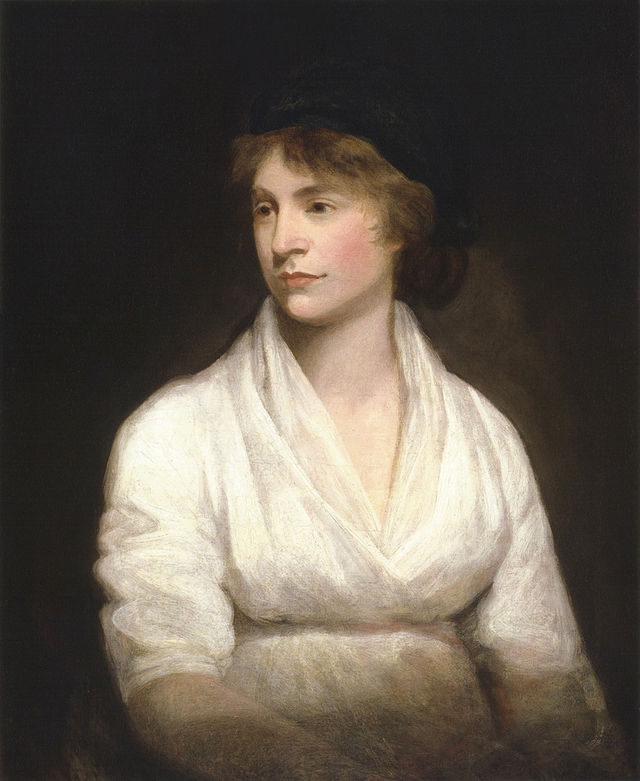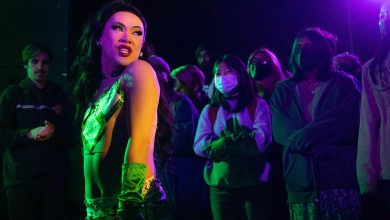Lessons from Mary: Early Feminist Thinkers and Us
My first encounter with feminist text was when I was studying for the SATs. In my textbook, I found a passage that had been culled from Mary Wollstonecraft’s A Vindication of the Rights of Woman. As a teenage girl struggling with the gender politics of a co-ed boarding school in Nigeria, I was floored by how much I related to what she wrote. I copied the passage onto a small sheet of paper with pink Sharpie ink and for a time, it was the only thing on my bedroom wall. The passage was as follows:
My own sex, I hope, will excuse me, if I treat them like rational creatures, instead of flattering their fascinating graces, and viewing them as if they were in a state of perpetual childhood, unable to stand alone. I earnestly wish to point out in what true dignity and human happiness consists—I wish to persuade women to endeavour to acquire strength, both of mind and body, and to convince them that the soft phrases, susceptibility of heart, delicacy of sentiment, and refinement of taste, are almost synonymous with epithets of weakness, and that those beings who are only the objects of pity and that kind of love, which has been termed its sister, will soon become objects of contempt. […] I wish to show that elegance is inferior to virtue, that the first object of laudable ambition is to obtain a character as a human being.
Reading Wollstonecraft again, I realize that many of the “fascinating graces” she was criticizing were important values (like patience and compassion) that everyone should strive for, and that her irritation with the women around her was all at once feminist, androcentric, and misogynistic. Before, I was sold. I couldn’t understand why the girls in my class presented themselves as fragile. In the privacy of our all-female hostels, they killed rats and climbed trees to pluck cashews, but in the presence of our male peers, they screamed because of flies and whenever we played contact sports. For me then, and for me now (although American gender politics is ostensibly more evolved than Nigerian gender politics), there was and is some truth to Wollstonecraft’s argument that female education encourages women to be docile, delicate and think of themselves as objects, rather than subjects, of love and sex. When Wollstonecraft was writing in 1791, there was no such word as “feminism,” yet now, more than 200 years later, her words ring true.
Feminists have made many strides, and feminism is now a lot more than questioning the infantile education of women, but thinkers like Wollstonecraft still have a lot to offer us. I am interested in asking: how do those pre-feminist views compare to our contemporary feminist views? Has much really changed by way of how women are treated and viewed in society?
On the (sexual) objectification of women:
Wollstonecraft writes,
“Rousseau declares that a woman should never, for a moment, feel herself independent, that she should be governed by fear to exercise her natural cunning, and made a coquetish slave in order to render her a more alluring object of desire, a sweeter companion to man, whenever he chooses to relax himself. […] What nonsense!”
Perhaps one of our most conspicuous grievances as feminists is that women are still largely viewed and portrayed as sexual objects. In this regard, not much has changed since 1791. For Wollstonecraft, when women render themselves alluring objects of desire, it is because they have been socialized into seeing themselves as such. Now, our conversations about female objectification are a lot more complex because we have to negotiate with the knowledge that women sometimes deliberately excite the male gaze, as a way of asserting their sexual agency. It is the confusion between sexual self-expression and sexual objectification that has spurred conversations surrounding Kim Kardashian, Nicki Minaj, Beyonce, Miley Cyrus, Rihanna and so on. Modern day feminists are still undecided if women who choose to adopt previously oppressive erotic beauty standards are exploiting or empowering themselves. Is the sexual self presentation of women empowering or upholding the status quo?
On women & economic power:
The same year that Wollstonecraft published A Vindication, Olympe de Gouges, a French woman, published a Declaration of the Rights of Woman and the Female Citizen, on her finding that the French Revolution’s rallying cry of “liberty, equality, and fraternity,” did not include women. She argued for women’s right to divorce and to own property. She wrote:
“Property belongs to both sexes whether united or separate; for it is an inviolable and sacred right; no one can be deprived of it.”
De Gouges is arguing here that women should have the right to own property, because in France at this time, women couldn’t own property and were economically dependent on men. For her, economic independence would facilitate the improvement of women’s lives. In saying that property was an “inviolable and sacred right,” De Gouges implies that the right to material wealth is just as important as the right to life. Many feminists today would disagree with her, most notably bell hooks, who notoriously called Beyonce a terrorist last year because of her brand of “power feminism.” For bell hooks, and other feminists who are weary of capitalist modes of power, the assimilation into capitalist society that Olympe de Gouges is seeminlgy advocating is not the answer to women’s problems. Thankfully, now in most of the world (though definitely not all), women do have a right to divorce and to own property, but this has still not evened out the distribution of socioeconomic power.
The problems of capitalism notwithstanding, there are other contemporary feminists who recognize the importance of economic independence for women. People like Sheryl Sandberg come to mind. They believe that there is nothing inherently wrong in women wanting to and partaking in the accumulation of power and wealth. Both of these lines of argument are valid, and the contest between the individual and the collective will probably continue on in feminism. Olympe de Gouges, however, offers an interesting way of thinking about women and economic power. For her, no one can be deprived of it. So, she’s not arguing that one woman get rich, but that each woman (regardless of her race, class or sexuality) have the property that she is entitled to without disenfranchising others.
On gender as a binary:
Mary Wollstonecraft, in a remarkably clairvoyant moment, wrote that,
“A wild wish has just flown from my heart to my head, and I will not stifle it, though it may excite a horse-laugh.—I do earnestly wish to see the distinction of sex confounded in society, unless where love animates the behaviour.”
This idea that gender should be confounded would be later adopted by radical feminists of the 60s and 70s. They argued that as long as gender existed as a division, women would be oppressed. For them, and for many feminists now, biology had nothing to do with gender, and a genderless world was ideal. Ann Leckle, a science fiction author recently published a book Ancillary Justice, in which characters were not distinguished by gender. Clearly, Wollstonecraft’s “wild wish” still has come currency. Should we do without gender?
Feminism has evolved a great deal since 1791, especially with regards to inclusivity and intersectionality, but these thinkers have a lot to offer us in thinking about the questions that plague us today. It would be worth revisiting their ideas.





